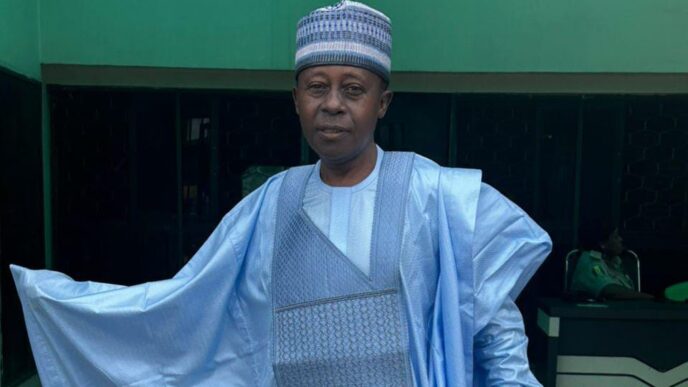EFCC operatives | File photo
The supreme court has reserved judgment in the suit challenging the constitutionality of the Economic and Financial Crimes Commission (EFCC).
The seven-member panel of the supreme court, led by Uwani Abba-Aji, on Tuesday deferred judgment to a date that will be announced to the parties in the suit.
During the proceedings, three states — Adamawa, Ebonyi, and Anambra — announced their withdrawal from the suit.
Lateef Fagbemi, attorney-general of the federation, who is representing the federal government, did not oppose the withdrawal.
Advertisement
The apex court struck out the names of the states from the suit.
Imo, Bauchi and Osun states later applied to join the suit against the anti-graft agency.
Sixteen states had approached the apex court to challenge the operations of the EFCC.
Advertisement
The states contended that the anti-graft agency was not validly established in 2003 by the Olusegun Obasanjo administration.
BACKGROUND
The suit challenging the legality of the EFCC was initially filed by the Kogi state government.
Subsequently, 15 states applied to join Kogi in the suit.
Advertisement
The states are Ondo, Edo, Oyo, Ogun, Nasarawa, Kebbi, Katsina, Sokoto, Jigawa, Enugu, Benue, Anambra, Plateau, Cross River, and Niger.
The states argued that the national assembly failed to adhere to section 12 of the 1999 constitution (as amended), which governs the incorporation of international treaties into domestic law, in the enactment of the EFCC Act.
They further maintained that domesticating a convention requires the approval of a majority of the state houses of assembly — based on the provisions of section 12 of the constitution.
They added that the procedure for domesticating the convention was bypassed in the process of passing the EFCC Act and similar laws.
Advertisement
They noted that the EFCC Act cannot be applied to states that did not consent.
The suit has elicited varied reactions, with some civil society organisations faulting the state governments involved.
Advertisement











